My most memorable lesson in all my years of gymnastics was How to Fall.
When we started doing trickier moves on the balance beam, falling off was inevitable. But there were two ways to fall: the safe way or the dangerous way.
A funny thing: Learning how to fall safely took practice. Tons of it! We had to try ‘safe falling’ over and over and over to commit it to muscle memory.
‘Dangerous falling’ is more instinctual, and the habit is really hard to break! It took months for safe falling to feel natural.
Last week I was in Panama City, a phenomenal feat of humankind in which skyscrapers have somehow exploded all over a living jungle of palm trees and hot orange heliconia bushes. Even the financial district looks wild thanks to technicolor blossoms to cluttering up a row of orderly bank buildings.
It’s been on my list ever since I saw a (ugh yes) 90 Day Fiancé storyline set in Panama City and it looked unlike anywhere I’ve ever been. It looked like some computer-generated City of the Future with glass condos sprouting up from lush lagoons, plus a precious treasure box of an old town on the side. And indeed, it’s the most cosmopolitan, diverse, spirited, and HUMID city I’ve been to in Latin America.
But I really went to Panama to fall.
Though Spanish is one of my greatest passions, I’m painfully shy about speaking it. I prioritized visiting a Spanish-speaking country this year so I could teach myself how to ‘fall safely.’ I wasn’t there to practice Spanish as much as I was there to practice making mistakes.
I can understand logically that nobody cares if I say the wrong word or need a sentence repeated, but I need to feel in my body that I’ll survive if either happened. (My kindergarten teacher said I was a kinesthetic learner: I only grasp concepts by actually doing them.) There’s a canyon of difference between rationally knowing how to fall, and practicing falling until it feels comfortable.
Our natural human instinct is to break our fall with our hands, which is likely to result in broken bones. The safer way to fall is to allow our entire bodies to absorb the shock. It’s a much more vulnerable way to reduce injury—our bodies are naturally on the defense!—but it’s ultimately so much healthier.
I thought about this as my first instinct when I make a mistake is to defend myself, sometimes aggressively. “I KNOW THE CONDITIONAL SUBJUNCTIVE!” I want to yelp out after bulldozing my way through the anecdote I’m sharing with a cab driver. I want him to know I actually get this, that I’m actually smart, that I understand what I did wrong, that I’m not naive to my errors.
But just like physical falling, that instinctual defense will only get in my way and actually break the interaction. If the goal of learning Spanish is communication, then constantly correcting myself to preserve my pride will actually hinder our conversation. I’ll never get to the end of my anecdote. It will be much more about my own arrogance than my desire to connect in a different culture.
My friend just sent me this article on how “therapy-speak” is making us lose our compassion and intimacy with others, something I’ve been thinking about for years now.
I understand that the pendulum needs to swing in an extreme direction before it levels out, and I get that severe boundaries in the name of self-care are an overcorrection for folks (like me!) who have been continually praised for people-pleasing over articulating our own needs.
Yet I’ve seen firsthand how these concepts endanger true community and threaten intimacy, since it’s a lot easier—and dare I say seemingly safer—to cut someone off than risk a vulnerable conversation.
But is that really safer? In gymnastics we learned that it’s not actually safe to throw out our hands like two stop-signs as we’re falling down. It’s better for our entire body to lean into the fall at the expense of full-body discomfort, rather than bones breaking for the sake of misguided “protection.”
Likewise, does it make a community safer to ostracize one person for going against the rules? It may be our instinct to throw our arms out and push the person farther away, though it ends up breaking our own bones. What might it look like for the entire community to absorb the shock instead, leaning into the fall for the sake of remaining whole?
These are things that went through my head as I walked the sometimes-cobbled, sometimes-slick streets of Panama City. I thought about the ways that I try to keep myself safe by tightening up and pushing away.
Please don’t talk to me, I’d silently pray when I got into a cab, because then I’d be forced to do what I came here to do: make mistakes. I hate the feeling of being so exposed. How much easier it is for me to be in perfect control of how I speak, and thus be in control of how I’m seen.
But Panamanians like to talk! And when I relaxed my shoulders and stopped mentally pushing away, I could talk too. I really could. I could make jokes and I could remember the future perfect and I could ramble in my own Mari way.
But much more importantly, I could listen: to childhood stories, obscure recommendations, and fascinating histories.
In the thick of a conversation, my passion for Spanish would flare up. The language is so rich and special; it is a joy and an adventure to learn it. The point was never to be perfect. Who’s giving out awards for that anyway? I love being complimented for my Spanish OF COURSE, but I really really love getting to talk to people when there would otherwise be a barrier.
There were times of discomfort, and so often the lingering ache of WHY COULDN’T I REMEMBER THAT WORD IT IS THE EASIEST WORD I AM SUCH A DUMMY AHHH…but no broken bones. No broken conversation. Just the full-body pang of intimacy, which heals so much faster than a sprained wrist.
One of my silliest pet peeves is the phrase “untranslatable word.” One of the things that humans do best (besides build enormous cities in the middle of jungle forests) is communicate complex concepts. Just try to translate the word, I think, you can do it! See, you just did! We can do hard things, like explain saudade!
It feels like a version of thrusting out our arms to catch our fallibility rather than lean into the full-body discomfort of curiosity, and the possibility that we might fail.
A Spanish word that is commonly described as untranslatable in English is sobremesa, which is a pretty much the epitome of everything that enchants and challenges me about Latin culture.
Let me try to translate it…
The evening is plump and wet as a slice of fresh mango. We’re under an umbrella that’s dotted with dew drops and my skin is slimy in the enormous heat but we’re fighting fire with fire: spicy Tajín on every plate we’re sharing. When the last bits of ceviche are scraped off the porcelain plate and the margarita glasses are now half-full of melted ice, we’re sitting back and noticing that the humidity has lifted and the stars have descended. Time to chat: about nothing, about everything. It’s a long pause in an otherwise-frenetic day, and when I say long, I mean hours and hours. Some drink, some smoke, some seem to be in their own world but send a word out here and there. The table becomes sacred ground for secret-sharing and family-bonding—especially for those of us who aren’t related. The waiter will never come by until we explicitly ask, and even then they will encourage us to take our time. Because this is our time: the happiness we can claim for ourselves against any and all odds, against the regular rhythm of the day. We are doing the holy work of creating connection with others who we may never see again.
Sobremesa is also translated as: “relaxing at the table after a meal.”
The first cultural lesson I learned when living in South America was that the restaurant check doesn’t come to you unless you demand it. This is a glorious and frustrating way to live.
On nights like the one I described above, it’s the very best of Latin culture: it encourages presence, connection, and joie de vivre. Then on days when I have to get to work or when I’m just not in the mood to linger, it drives me nuts.
Haley Nahman recently wrote this advice about dealing with irritating friends:
When it comes to friends’ annoying but seemingly unchangeable traits, I try to challenge myself to think how this trait “causes” something I love about them. A friend who’s always late but has a calming way of not taking life too seriously. A friend who’s really bad at planning ahead but is always down for a spontaneous hang. A friend who’s bad at answering texts but is unusually present with you in person. A friend who’s a little messy and chaotic but magical and addicting to be around. Almost every annoying behavior pattern has an equal and opposite upside. This isn’t just a consolation prize, it’s a necessity: very often if you were to fix the annoying thing, you’d lose the special thing on the other side.
It made me think about the characteristics of different cultures: American loudness is a byproduct of positivity and friendly enthusiasm. Japan’s strict etiquette rules are also so beautifully expressed in thoughtful architecture and orderly design. Scandinavian stoicism hints at a great appreciation for nuance and subtlety.
And if I’m going to relish the Latin love of leisure, I can’t get upset when I have to wait longer than usual for the check. They go hand-in-hand.
If I were to instinctually fall into the culture, I’d put both arms out stick-straight and resist settling into a new rhythm. “I should go,” I’d say immediately after dessert. How habitual it is for me to rush away (to what exactly)?
But if I risk full-body discomfort with a safe fall, I could stand being jet-lagged and impatient in order to appreciate the dinners that spread out over hours.
It seems that growing up or growing older is a constant lesson in learning how to safely fall: into a new role, career, next step of a hobby, next stage of life. I find it comforting that change is inevitably uncomfortable—it’s not supposed to feel natural or instinctive at first—but resistance will only bring greater and longer-lasting pain.
So I return home with minor scrapes, and tougher skin. I succeeded in what I set out to do: fall repeatedly and safely. Who knew the ground beneath me would be so lush, and there would be so many kind souls to help me up?
Some highlights from my trip to Panama City:
Meeting my friend Mariana!
It was one of those rare, magical treats provided by the one and only Internet that I would get to meet up with Mariana Plata, who I met on Twitter if you can believe such a thing. I LOVE her smart, funny, brilliant newsletter (en español :) and it was just pure enchantment and ease to be in her company IRL. She’s one of those special people whose presence is both balm and tinder; I left our beautiful breakfast just buzzing with fresh thoughts.
She took me to a phenomenal restaurant called Salva, and the food was so good and lovingly-made that it made me cry! I could feel the respect and intentionality in every bite, and appreciated the Ayurvedic ingredients too!
She also recommended Mentiritas Blancas, which has a four-page coffee menu (!) and darling baristas.
Roaming around Casco Viejo
A word that came to mind over and over in Panama City was vitality. There was such aliveness everywhere—even in the old quarter (Casco Viejo), which I thought would be a sleepy pastel dreamscape only visited by tourists. Not the case at all!
Even there amidst the ruins and restored buildings, I felt and saw the strong energy of the city rush through the streets and around corners.
Meeting monkeys
Any day I get to interact with an animal is a perfect day for me, even if it involves wasp-size mosquitos and a speedboat driver who fancied himself the Evel Knievel of the Panama Canal. Being face-to-face with a Panamanian white-faced capuchin was a profound privilege. It was wonderful to be in a place that has so much respect for animal life and biodiversity. And a place with islands full of squeaky monkeys.
When have you fallen safely or dangerously? Have you been to Panama City, and can you tell me what I missed out on? Can you translate ‘sobremesa’ better than any of us? Any ideas on where I should travel next??
Coming up:
New York Book Event: This will be such a delight! I get to celebrate Dana Jeri Maier’s book launch in Brooklyn! She’s a dear friend of mine but also a beacon of unending creative inspiration, and you’re invited to come join our chat all about creativity!
Dana’s new book is ideal for anyone who struggles with the so-called creative process (NOT ANYONE I KNOW, WINK WINK!!) and we’re going to get into it: experimentation, procrastination, social media, and all your burning questions. RSVP HERE!

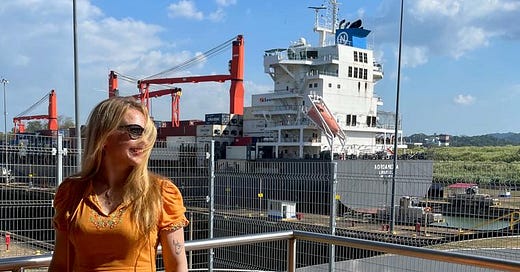



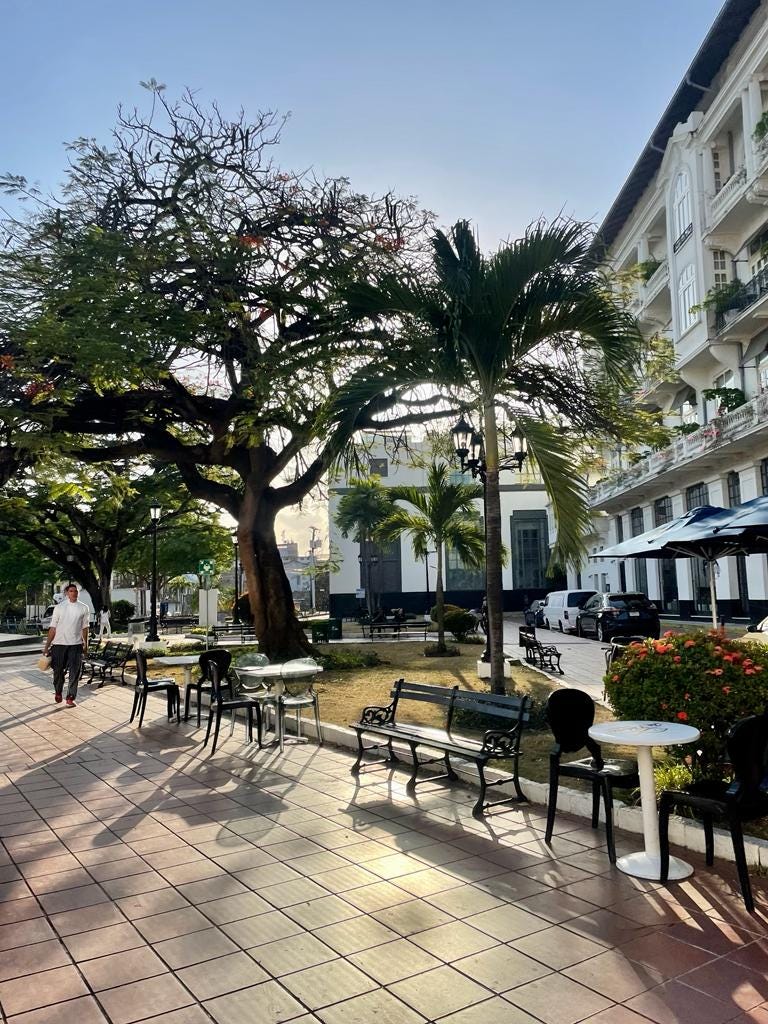
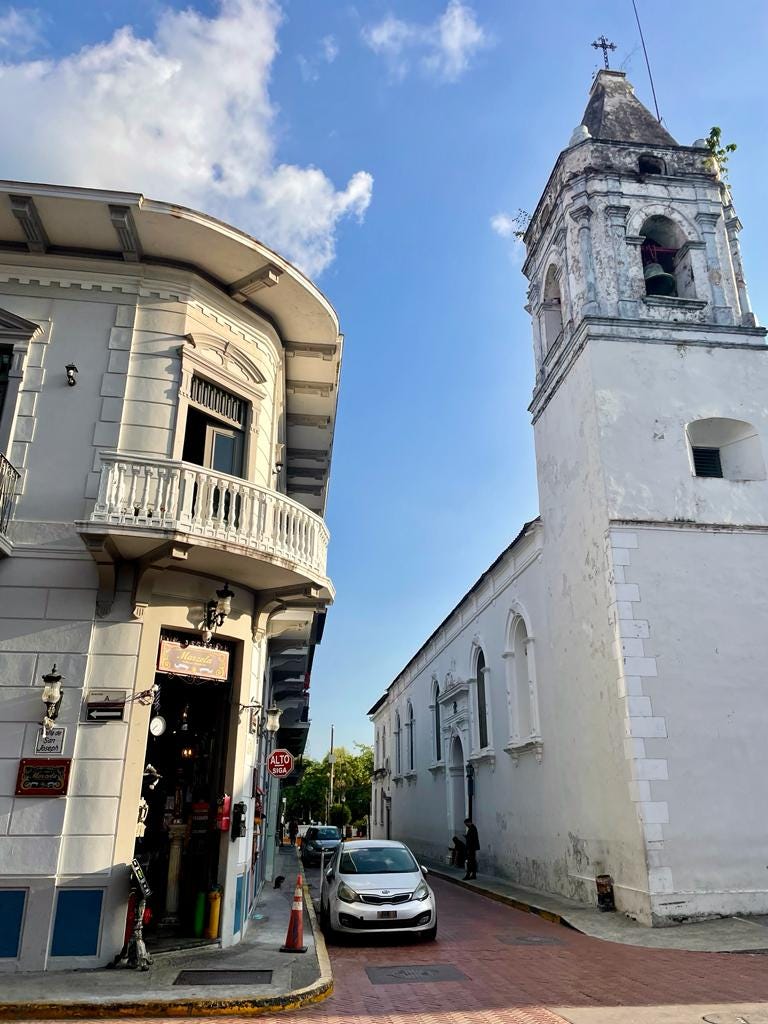
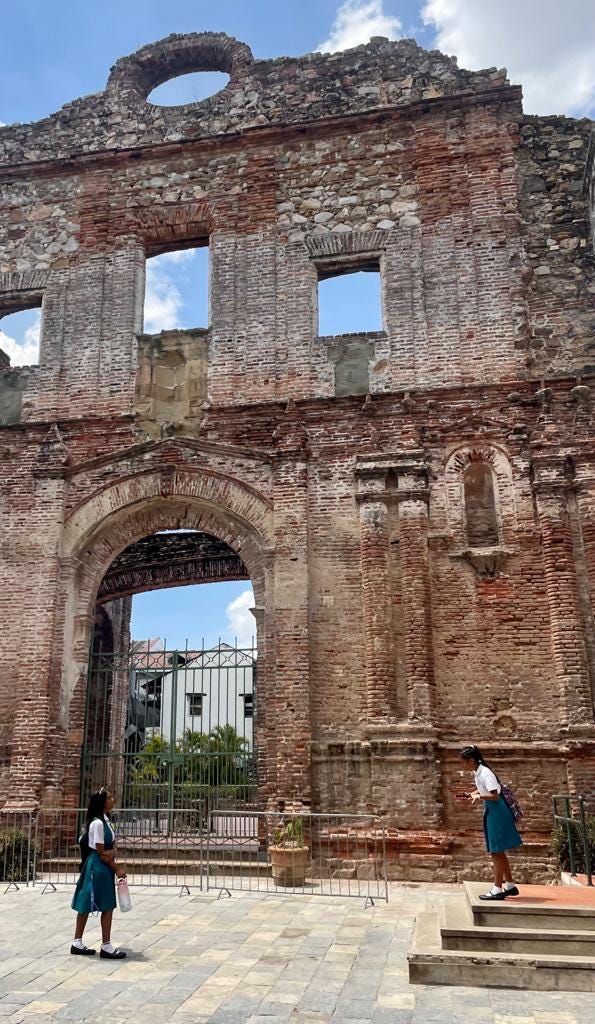
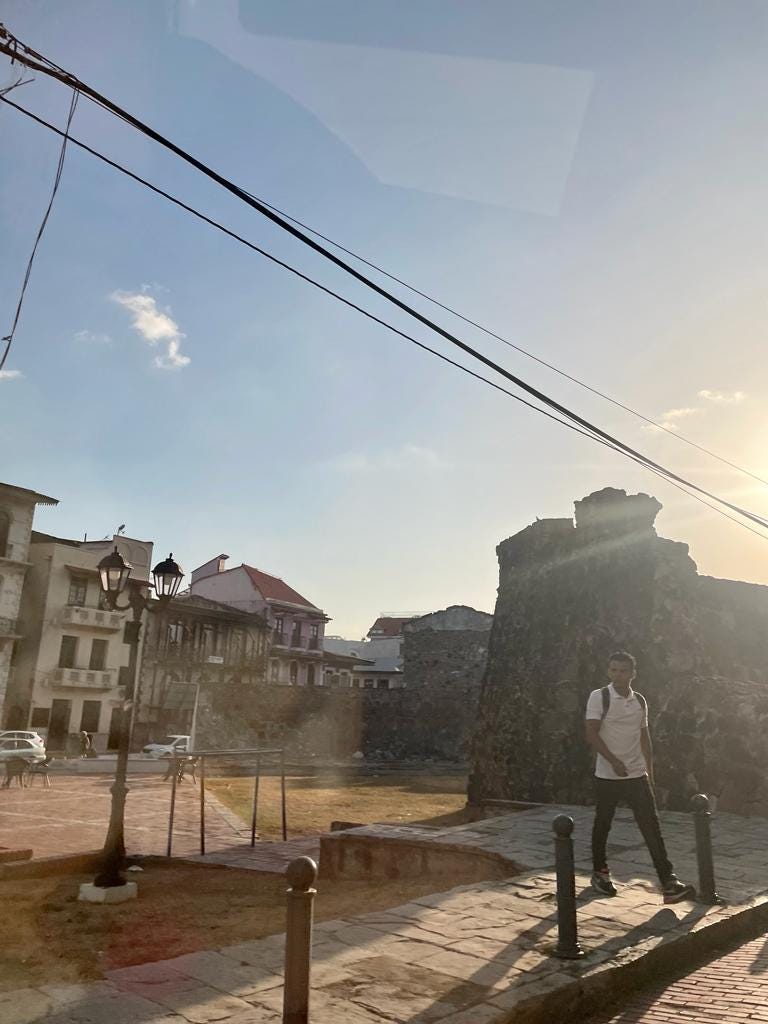
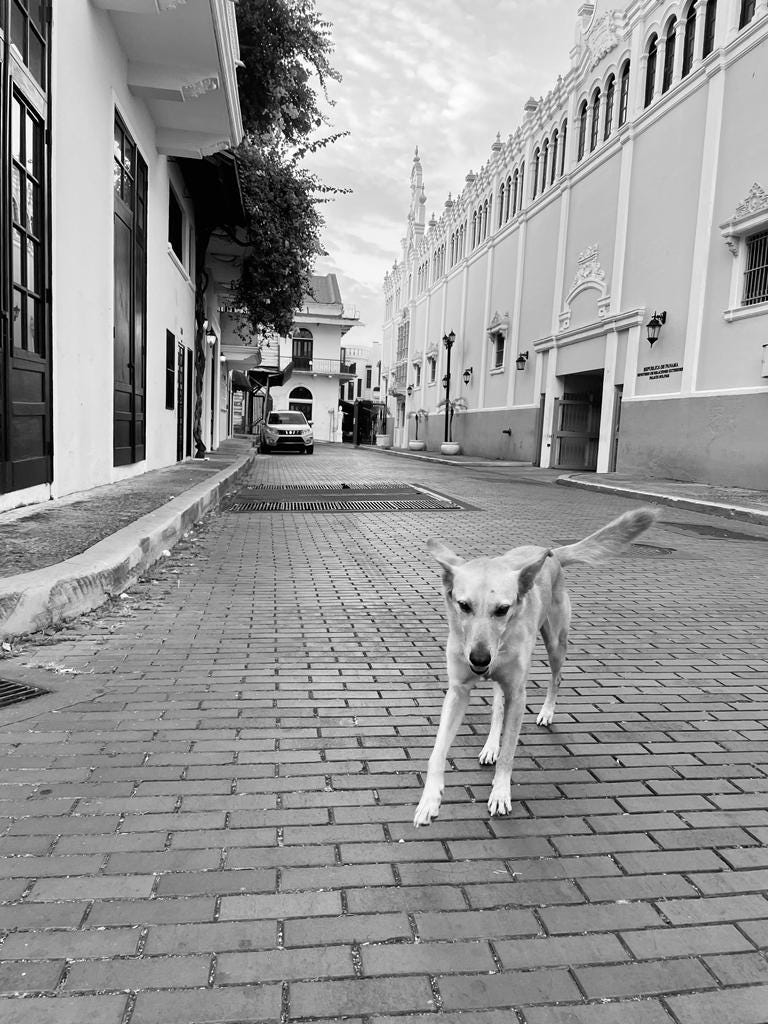
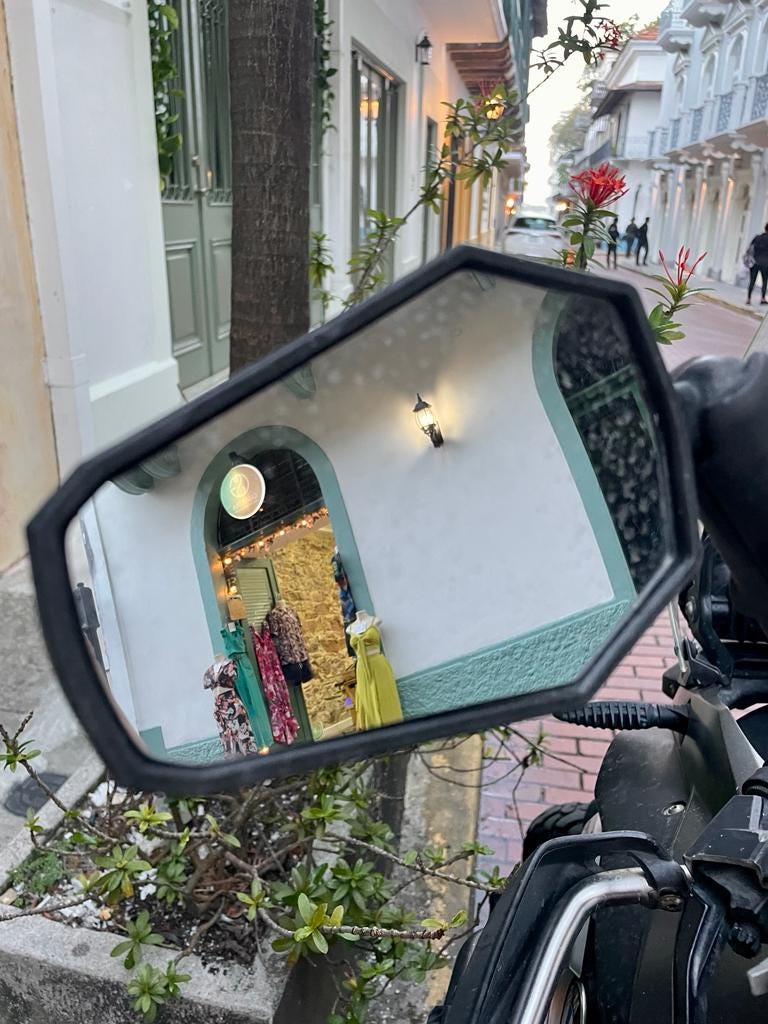
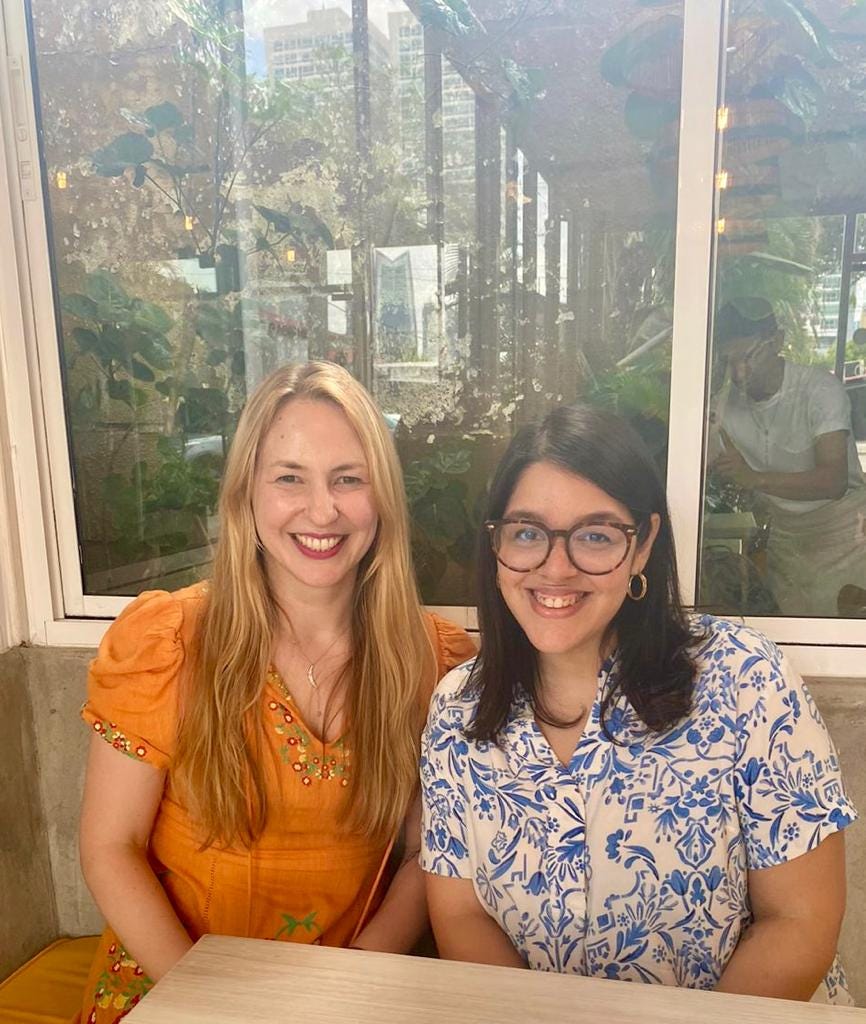
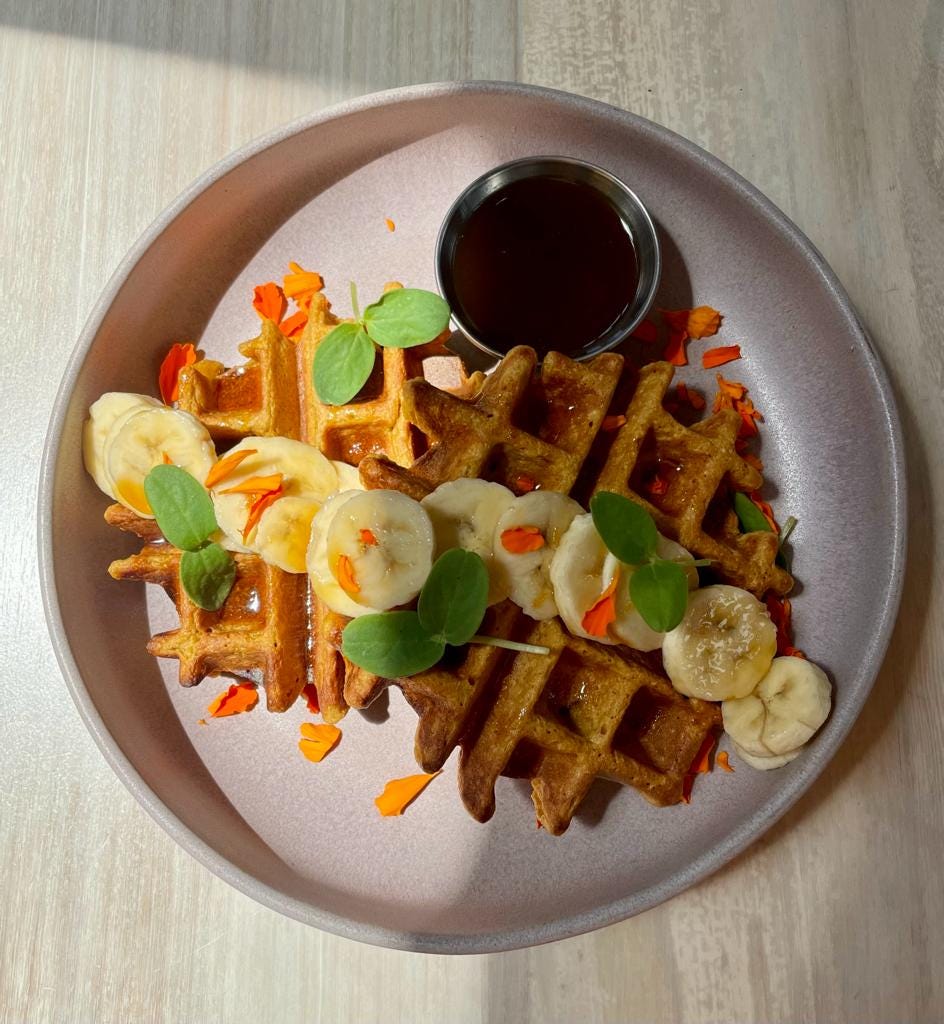
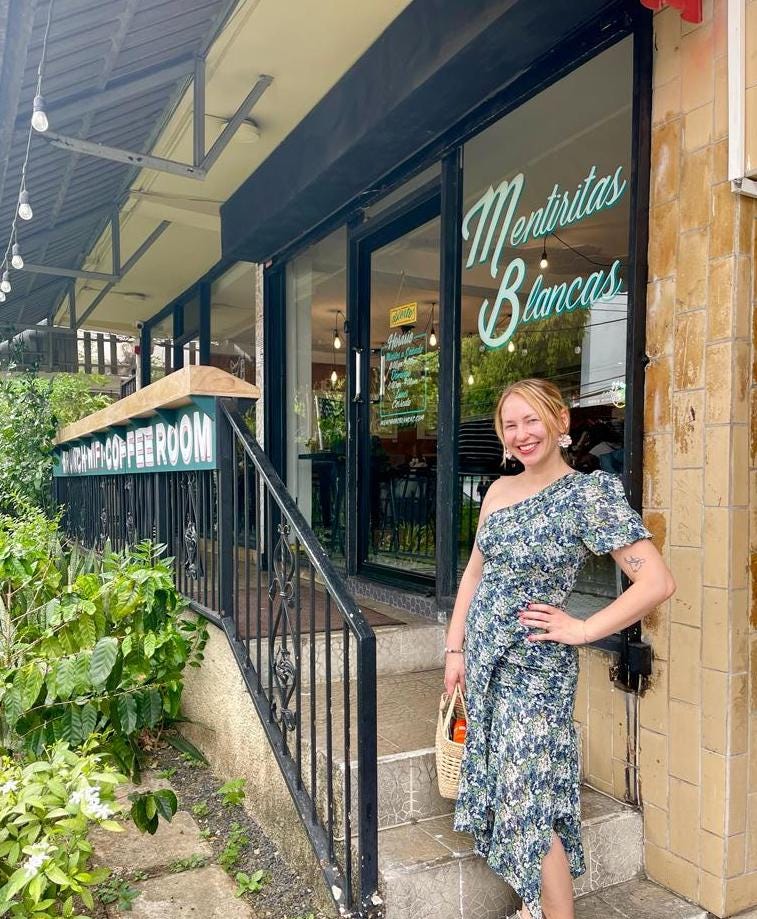
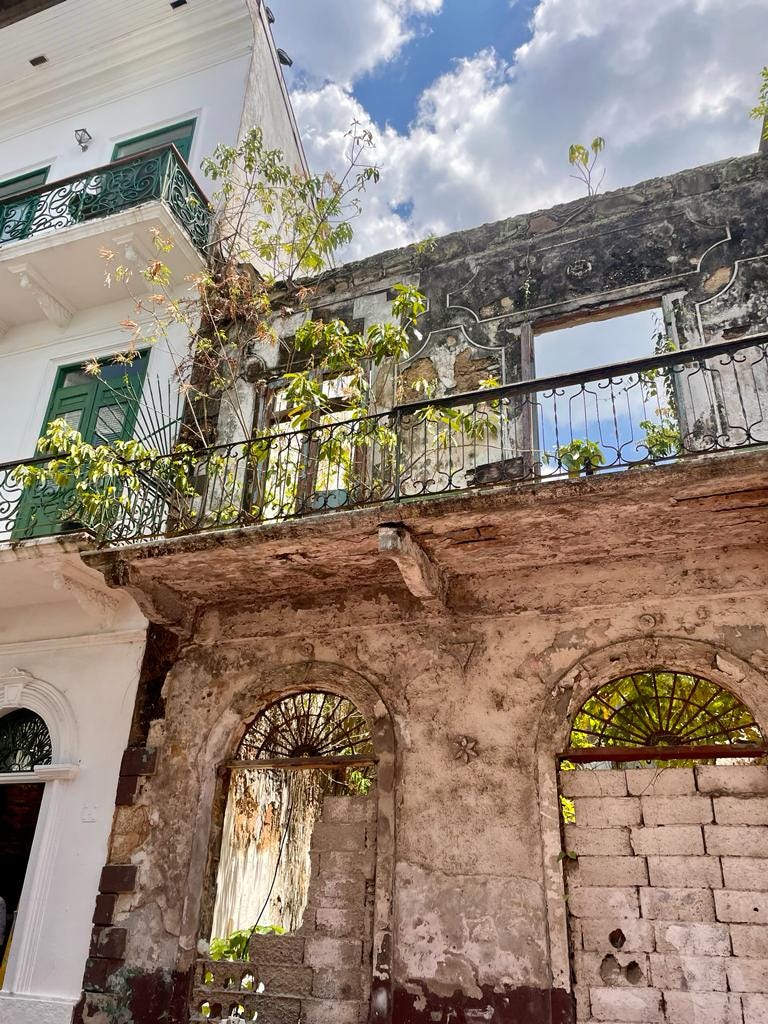
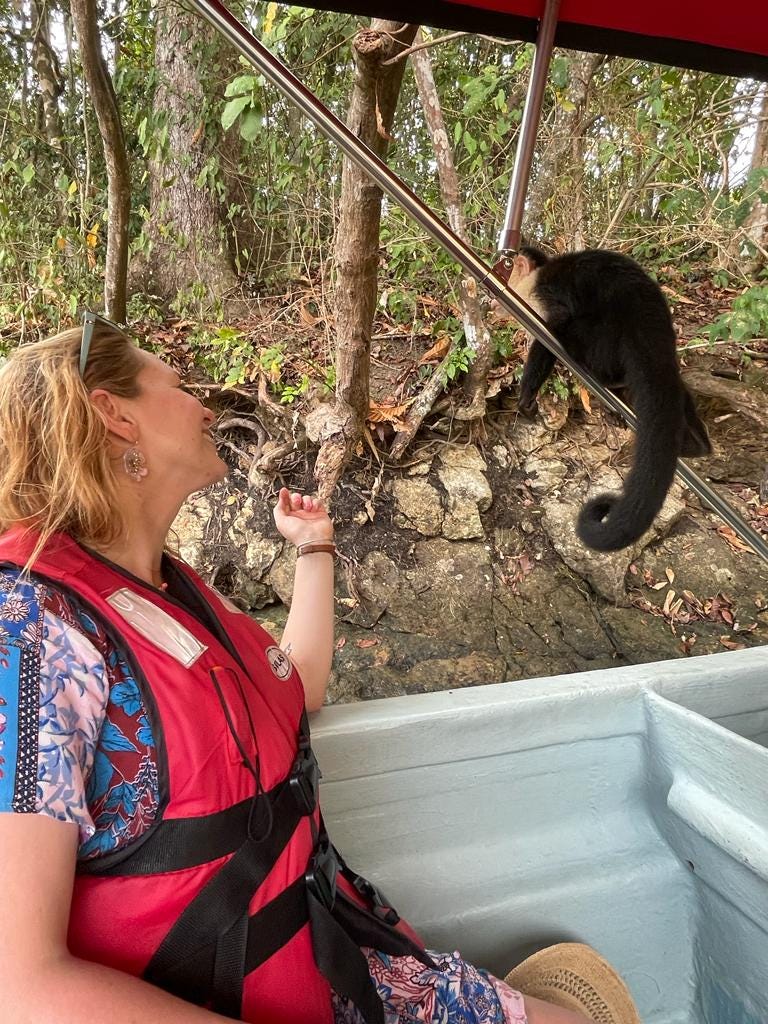

I love this all so much!! Your passion for nuestra cultura Latina shines through and is much appreciated!! And I think you captured our perspective of sobremesa perfectly ♥️♥️♥️
I love this travelogue, thank you for sharing. Have you been to Iceland yet? I imagine it’s quite opposite to the flare of Panama City but it was my first return to Europe after a heartbreak and the vast landscape was just what I needed. Enough space and beauty to hold my questions, unanswered. Plus I went to elf school when I was there and it was TRULY magical.